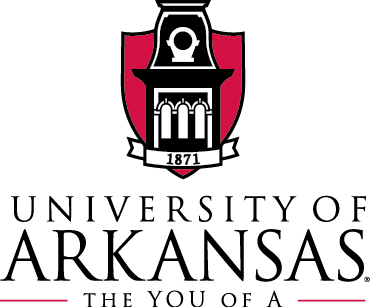 A movie that was shot in Kingsland, Ark. will make its NWA premiere Dec. 5 at Rogers Malco Towne Cinema.
A movie that was shot in Kingsland, Ark. will make its NWA premiere Dec. 5 at Rogers Malco Towne Cinema. Ozarks At Large
 A movie that was shot in Kingsland, Ark. will make its NWA premiere Dec. 5 at Rogers Malco Towne Cinema.
A movie that was shot in Kingsland, Ark. will make its NWA premiere Dec. 5 at Rogers Malco Towne Cinema.  Research continues on how the end of the last ice age affected people, plants and animals ten thousand years ago.
Research continues on how the end of the last ice age affected people, plants and animals ten thousand years ago.Wednesday the University of Arkansas recognizes GIS Day with sessions on how GIS technologies help several different disciplines.
 The U.S. Department of Health and Human Services has issued its final ruling on a long-anticipated federal insurance parity law, which ends discrimination against mental health. Jacqueline Froelich reports.
The U.S. Department of Health and Human Services has issued its final ruling on a long-anticipated federal insurance parity law, which ends discrimination against mental health. Jacqueline Froelich reports.All parties involved in a decades-long desegregation case in central Arkansas formally accept a deal to settle the litigation. A new report ranks Arkansas among the best in the U.s. for using technology to improve educational attainment. The Rogers Historical Museum gets a boost for its expansion project with General Improvement Funds from the state. And the Arkansas Highway and Transportation Department debuts a new interactive website to give Arkansas drivers a heads-up on construction zones in the state.
 Ahead on this edition of Ozarks, a conversation with the author of "On Repeat: How Music Plays the Mind." Plus, a report on recent changes for Kendrick Fincher Hydration for Life.
Ahead on this edition of Ozarks, a conversation with the author of "On Repeat: How Music Plays the Mind." Plus, a report on recent changes for Kendrick Fincher Hydration for Life.
 Kendrick Fincher Hydration for Life has gotten a new name, new logo and new office in recent months.
Kendrick Fincher Hydration for Life has gotten a new name, new logo and new office in recent months.The Rogers Police Department is hosting a public forum for members of minority communities at the Metroplex Event Center.
 Roby Brock from Talk Business Arkansas has income numbers for Walmart, Dillard's and more in his weekly business and political news recap.
Roby Brock from Talk Business Arkansas has income numbers for Walmart, Dillard's and more in his weekly business and political news recap.The Arkansas Legislative council on Friday heard details of a potential agreement to settle more than two decades of litigation involving the state and three Little Rock area school districts. The Buffalo National River releases its operational plan for next year. The state Capitol building is prepped for the holidays. And both Razorback cross country teams take the regional NCAA title.
Latest Edition of Ozarks at Large
Wednesday, March 5, 2014
Ahead on Ozarks, Roby Brock talks to the Dean of the University of Arkansas Clinton School of Public Service about Arkansas' election year. Also, we learn about a mobile center designed to help combat vets in rural locations. And, we explore the emerging field of cryotherapy.
Roiled a century ago by race riots, Harrison is taking pragmatic steps to repair its reputation, and has become culturally diverse, due to the presence of the Harrison Community Task Force on Race Relations. Still, as Jacqueline Froelich reports, a few local
white patriots have come out to mark the town as their territory.
The town of More Tomorrow, Belize could have a safe source of water soon with help from students at the University of Arkansas.
You can go to Russia to watch Olympic curling. You can go to Springdale to actually play.
New by Bjork
The issue of net neutrality is back in the news and we ask our tech ambassador for some of the basics.
As an African-American college freshman in 1958, Dorothy Marcy thought treatment she received was discrimination. Fifty years later she learned it was for her protection. More on Compassion Fayetteville can be found here.
Arrow by Tegan and Sara





